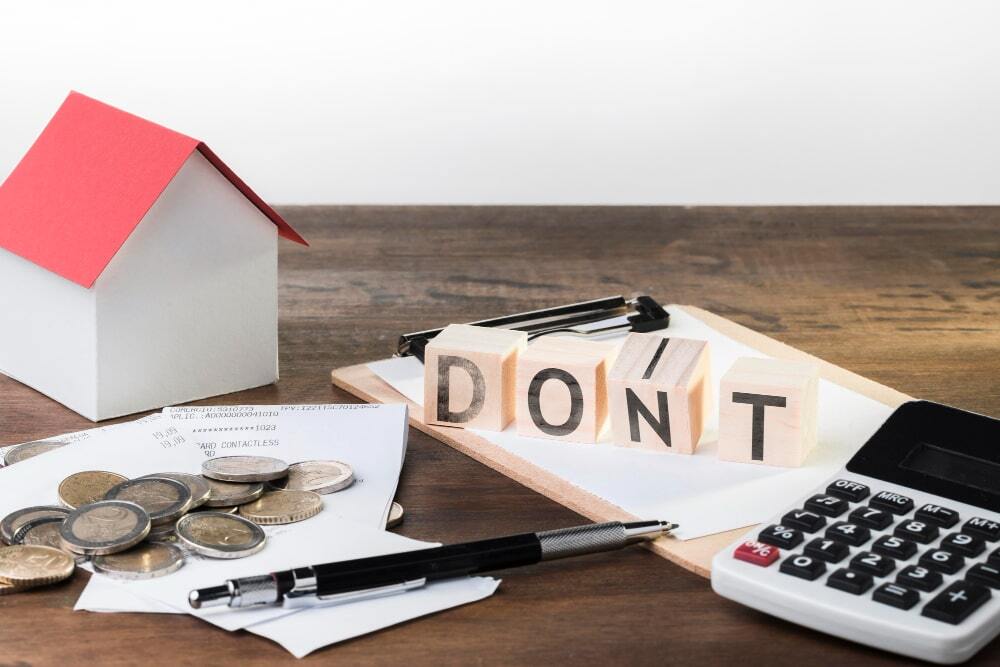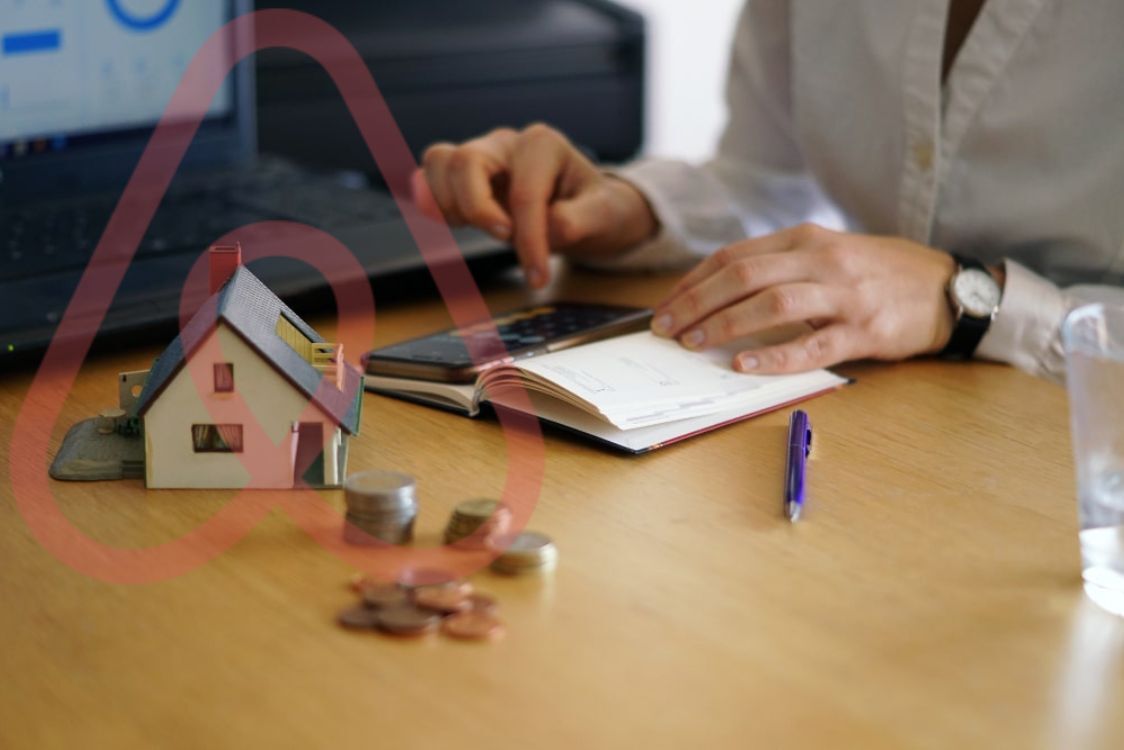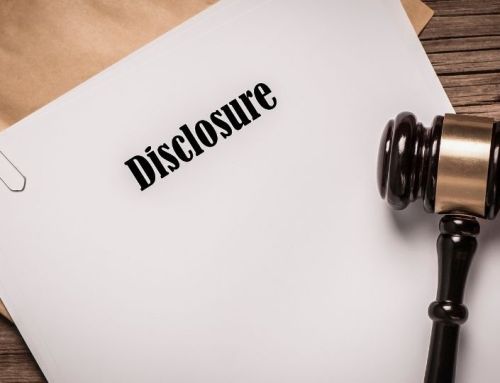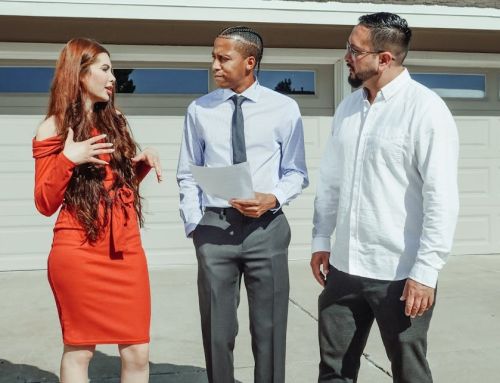The rise of short-term letting platforms like Airbnb has changed the property rental landscape in the UK. For thousands of hosts, it offers a lucrative side income or even a full-time business. However, tax on Airbnb income is not optional—and HMRC is paying close attention.
Whether you’re letting out a spare room occasionally or managing several properties as a professional host, knowing how to declare and manage your Airbnb income is vital. This guide explains your obligations in 2025, what reliefs and allowances are available, and how to structure your business tax-efficiently.
What counts as Airbnb income?
Airbnb income includes all payments received from guests for the use of your property. This typically covers:
- Nightly rental fees
- Cleaning fees
- Service charges passed on to guests
- Any additional amenities or extras charged for
All these earnings count as property income under UK tax law.
Even if Airbnb pays you after deducting their service fee, you must declare the full amount the guest paid as your gross income. The platform’s commission is claimed as an expense, not a reduction in income.
Is Airbnb income taxable in the UK?
Yes. If you earn money by renting out property via Airbnb in the UK, it is usually subject to tax. The only exception is if your total income from property is very low and falls within HMRC’s tax-free allowances—more on that shortly.
The UK government considers Airbnb income as “property income”, and it’s subject to Income Tax. If you’re running your Airbnb operation like a business (e.g. multiple properties, frequent lettings, additional services), it could even fall under trading income.
The key factors HMRC considers are:
- Number of nights let per year
- Services offered (cleaning, breakfast, etc.)
- Number of properties
- Level of involvement
What about the £1,000 property allowance?
If your Airbnb income is below £1,000 in a tax year, you don’t have to report it. This is known as the property income allowance. However, once your gross income exceeds this threshold, you must report all earnings to HMRC—not just the amount above £1,000.
You can either:
- Claim this £1,000 allowance and not deduct any expenses
- Ignore the allowance and deduct actual allowable expenses instead (useful if your costs are high)
This decision can significantly impact your taxable profit, so it’s worth calculating both scenarios.
Declaring Your Airbnb Income to HMRC
Once your Airbnb income crosses the relevant thresholds, you’re legally obliged to report it to HMRC. Even if Airbnb is just a side hustle, the earnings still count. Failing to declare could result in penalties, interest charges, or even an investigation.
Do I need to register for Self Assessment?
If your Airbnb income (before expenses) exceeds:
- £1,000 (property income allowance), or
- You are already self-employed or receiving untaxed income
…then yes, you must register for Self Assessment.
Deadline to register:
- 5 October following the end of the tax year in which you started hosting.
So, if you started hosting in June 2024, which falls in the 2024/25 tax year, you must register by 5 October 2025.
How to declare Airbnb income
You’ll need to:
- Register for Self Assessment with HMRC (if not already registered).
- Submit an annual tax return (SA100) including the SA105 Property Supplement.
- Report:
- Total gross income from Airbnb (before fees)
- Allowable expenses (cleaning, utilities, repairs, etc.)
- Any reliefs or allowances claimed
You can file online via your HMRC personal tax account, or through a tax agent.
Key dates:
- 31 January 2026 – Deadline for filing 2024/25 online tax return and paying any tax due.
- 31 July 2026 – Deadline for second payment on account, if applicable.
Airbnb and HMRC data sharing
Airbnb shares host income data with HMRC under international data-sharing rules. This means HMRC already knows how much many hosts are earning. If you haven’t declared this income, it’s only a matter of time before they contact you.
It’s better to disclose voluntarily than face penalties. If you’re unsure whether you’ve missed a year, you can make a voluntary disclosure under HMRC’s Let Property Campaign.
Allowable Expenses: What Airbnb Hosts Can Deduct
When calculating tax on Airbnb income, it’s important to remember that you’re taxed on your profits, not your gross income. That means you can deduct legitimate business expenses from your earnings to reduce your tax bill.
But not everything counts. HMRC has clear rules on what’s considered an “allowable expense” for property income.
Common allowable expenses for Airbnb hosts
Here’s a breakdown of what you can usually claim:
- Cleaning costs (including laundry services and replacement linens)
- Airbnb service fees and booking platform charges
- Mortgage interest (not capital repayments — see next section on finance costs)
- Council tax, gas, electricity, water and broadband bills
- Repairs and maintenance (e.g. plumbing, decorating, replacing broken furniture)
- Insurance (landlord or host-specific insurance policies)
- Advertising and marketing (e.g. website costs, premium listings)
- Consumables (toiletries, snacks, coffee pods)
- Accountancy fees or software used to track Airbnb income
- Wear and tear (in some cases, depending on how the property is furnished)
You can only claim for costs that relate to your Airbnb business. Personal use of the property must be proportioned out appropriately. For example, if you live in the home and rent out a room part-time, you can only deduct a fair share of the utility bills.
Apportioning shared costs
If you rent out just part of your home, you’ll need to apportion shared expenses like electricity, internet, and water.
Let’s say:
- Your Airbnb room takes up 20% of the property
- You rent it out for 100 days a year
Then only (20% x 100/365) ≈ 5.5% of your annual bills would be claimable.
Document your calculations carefully in case HMRC asks for evidence.
Capital vs revenue expenditure
- Revenue expenditure: everyday running costs = deductible in full
- Capital expenditure: improvements to the property (e.g. new extension, installing a hot tub) = not deductible through property income, but may qualify for capital allowances or reduce Capital Gains Tax later
Understanding this distinction is essential to avoid errors in your tax return.
Furnished Holiday Lettings vs. Regular Rentals
Airbnb properties can fall into two different tax categories:
- Furnished Holiday Letting (FHL)
- Standard property rental
Why does this matter? Because FHLs benefit from more generous tax treatment. But strict conditions apply.
What is a Furnished Holiday Letting (FHL)?
According to HMRC, a property qualifies as an FHL if:
- The property is located in the UK or EEA, and
- It’s furnished sufficiently for normal occupation, and
- It meets the following occupancy conditions:
- Availability Condition: It must be available to the public for at least 210 days a year.
- Letting Condition: It must be actually let to the public as short-term accommodation for at least 105 days a year.
- Pattern of Occupation: It must not be let to the same person for more than 31 continuous days, and long-term occupation must not exceed 155 days a year.
If all these are met, HMRC considers it an FHL.
Why aim for FHL status?
If your Airbnb qualifies as a Furnished Holiday Letting, you unlock several tax advantages not available to standard landlords:
| Benefit | FHL | Standard Let |
| Mortgage interest deduction | 100% allowable | Restricted under finance cost rules |
| Capital allowances | Claimable on furniture, white goods, etc. | Not available |
| Pension contributions | Profits count as relevant earnings | Don’t count |
| CGT reliefs (when selling) | Business Asset Disposal Relief available | No relief |
| Business rates | May apply instead of Council Tax | Typically not applicable |
This can significantly reduce your tax on Airbnb income while improving cash flow and long-term financial planning.
Failing to meet FHL conditions
If your property fails the 105-day letting threshold, you may still qualify by:
- Averaging election: If you own multiple properties, the days can be averaged across them.
- Period of grace election: If you met the criteria in the previous year and can prove you tried to let the property, HMRC may allow FHL status for one or two years.
Speak to a tax advisor if you’re borderline. The right election could save you thousands.
Rent-a-Room Relief: When Does It Apply to Airbnb?
If you rent out a room in your own home via Airbnb, you may be eligible for Rent-a-Room Relief, which allows you to earn up to £7,500 per year tax-free.
But this relief only applies in very specific circumstances, and many Airbnb hosts misunderstand when and how they can use it.
What is Rent-a-Room Relief?
Rent-a-Room is a government scheme designed to encourage homeowners to let out spare rooms. It’s available whether you own or rent your home (with permission from your landlord or mortgage provider).
If eligible, the first £7,500 you earn from letting a furnished room in your main residence is completely tax-free.
Who qualifies?
To qualify for Rent-a-Room Relief:
- You must live in the property as your main residence
- The room must be furnished
- It must be let as residential accommodation (short or long-term)
So if you’re renting out a spare room in your home on Airbnb — even just on weekends — you likely qualify.
However, if you rent out the entire property, you do not qualify for Rent-a-Room Relief. This is where many Airbnb hosts get caught out.
How the relief works
You have two choices when your Airbnb income qualifies:
- Claim the £7,500 tax-free and don’t deduct any expenses
- Ignore the relief and calculate your profit using actual income minus expenses (if your costs are high, this may be better)
If you jointly own the home, the threshold is halved: £3,750 each
What if I rent out part of the property and live in it too?
You can still claim the relief if you remain in the property while the guest is staying. For example, if you host tourists in a spare bedroom while you stay in your home — that counts.
But if you go away while guests have full use of the house, HMRC may say this is a standard property let, not a lodger arrangement.
Always document guest stays, your presence, and how the space was used if you plan to claim Rent-a-Room Relief.
Can I use Rent-a-Room and the property income allowance?
No. You can only use one of the following per tax year:
- Rent-a-Room Relief
- £1,000 Property Income Allowance
- Actual expenses method
Choosing the most tax-efficient route depends on your situation — and sometimes a mix of methods year by year works best.
Mortgage Interest and Finance Cost Restrictions

If you’ve purchased a property with a mortgage and are letting it out on Airbnb, you might expect to deduct your mortgage interest in full from your income. But recent changes to UK tax rules make it more complex—especially if your property doesn’t qualify as a Furnished Holiday Let (FHL).
How mortgage interest used to work
Before April 2020, landlords could deduct all mortgage interest payments as an allowable expense, directly reducing their rental profits and Income Tax.
That’s no longer the case—unless your Airbnb qualifies as an FHL.
The current rules: Finance cost restrictions
If your property does not qualify as an FHL, you cannot deduct mortgage interest as an expense. Instead, you receive a basic rate tax credit worth 20% of the interest paid.
This means:
- Higher-rate and additional-rate taxpayers cannot deduct mortgage interest from profits
- You may appear to earn more (on paper), pushing you into a higher tax band
- You pay more tax, even if your actual profit hasn’t changed
Example:
- Airbnb rental income: £24,000
- Allowable expenses (excl. mortgage): £4,000
- Mortgage interest: £8,000
Old system (pre-2020):
- Profit = £24,000 – £4,000 – £8,000 = £12,000
- Tax paid (20%) = £2,400
New system:
- Profit = £24,000 – £4,000 = £20,000
- Tax on £20,000 (assuming 40% rate) = £8,000
- Less tax credit (20% of £8,000) = £1,600
- Final tax paid = £6,400
Big difference—especially for higher earners.
FHL status changes everything
If your Airbnb qualifies as a Furnished Holiday Let, the old rules still apply. You can deduct 100% of mortgage interest as an expense.
This is one of the most compelling reasons for aiming to meet the FHL criteria if your Airbnb is in a holiday hotspot.
Capital Gains Tax When You Sell Your Airbnb Property
Selling an Airbnb property can result in a significant Capital Gains Tax bill, especially if the value has risen sharply since you purchased it. But your tax liability—and available reliefs—depend heavily on how the property was used and whether it qualified as a Furnished Holiday Let (FHL).
When does CGT apply?
Capital Gains Tax is payable when you sell (or “dispose of”) a property for more than you paid for it. The gain is the difference between:
- The sale price (less selling costs)
- The purchase price (plus acquisition costs and any qualifying improvements)
You’re only taxed on the gain, not the full sale price.
In 2025, the CGT annual exemption is:
- £3,000 per person (reduced from previous years)
Anything above that is taxed at:
- 18% on the portion of the gain within the basic rate band
- 28% on the portion of the gain within the higher or additional rate band
What if I lived in the property?
If you used the Airbnb property as your main residence at any point, you may be eligible for Private Residence Relief (PRR) and Lettings Relief, which can significantly reduce your CGT.
But these are tightly restricted and don’t usually apply if:
- You didn’t live in the property
- You let the entire property via Airbnb
- You bought the property solely to rent it out
Still, it’s worth checking if part of the gain qualifies for any reliefs.
Furnished Holiday Let CGT advantages
This is where FHL status can save you a lot of money.
Furnished Holiday Lettings qualify as business assets, not just rental properties. That means:
- You may qualify for Business Asset Disposal Relief (BADR) (formerly Entrepreneurs’ Relief), taxing gains at 10% rather than 28%
- You may also be eligible for:
- Rollover Relief (defer gains by reinvesting in another property)
- Holdover Relief (if gifting the property)
- Gift Relief (passing property on without triggering a gain)
To qualify:
- The property must meet FHL conditions in the tax year of disposal
- You must actively operate it as a holiday let
FHL vs Non-FHL CGT Comparison Example
| Scenario | Non-FHL | FHL |
| Gain on property | £120,000 | £120,000 |
| Annual exemption | £3,000 | £3,000 |
| Taxable gain | £117,000 | £117,000 |
| Tax rate | 28% | 10% (with BADR) |
| Tax due | £32,760 | £11,700 |
That’s a £21,000 difference in tax liability.
Careful planning before selling can dramatically reduce how much CGT you owe.
Frequently Asked Questions
1. Do I need to pay tax on Airbnb income in the UK?
Yes. If you earn money through Airbnb, you must report that Airbnb income to HMRC. Whether it’s a one-off rental or a regular income stream, the UK treats this as taxable property income. If your total gross earnings exceed the £1,000 property allowance, you’re legally obliged to declare the tax on Airbnb income and may need to register for Self Assessment.
2. How much tax will I pay on Airbnb income?
The amount of tax on Airbnb income depends on your total taxable income and which Income Tax band you fall into:
- Basic rate (20%): Income up to £50,270
- Higher rate (40%): Income £50,271–£125,140
- Additional rate (45%): Over £125,140
You’re taxed on your profits, not gross income. Allowable expenses can reduce what you owe. If your Airbnb qualifies as a Furnished Holiday Let, you may also claim capital allowances and other reliefs.
3. What expenses can I deduct from my Airbnb income?
Allowable expenses for reducing tax on Airbnb income include:
- Cleaning fees
- Utilities and council tax
- Mortgage interest (partially, unless it’s an FHL)
- Airbnb service fees
- Insurance
- Repairs and maintenance
- Advertising and admin costs
These deductions lower your taxable profit, reducing the tax on Airbnb income significantly.
4. Can I avoid tax on Airbnb income by using Rent-a-Room Relief?
You can only use Rent-a-Room Relief if:
- You live in the property as your main residence
- You’re letting a furnished room, not the entire home
- The income is less than £7,500 per year (or £3,750 each if jointly owned)
If those criteria are met, your Airbnb income is tax-free up to that threshold. If you rent out the full property or live elsewhere, this relief doesn’t apply and you must pay tax on Airbnb income like any landlord.
5. How do I report Airbnb income to HMRC?
To report tax on Airbnb income, you must:
- Register for Self Assessment (by 5 October after the tax year ends)
- Complete a tax return (SA100) and Property Supplement (SA105)
- Declare all Airbnb earnings and deduct allowable expenses
- Pay any tax owed by 31 January following the tax year
HMRC now receives data directly from Airbnb, so underreporting Airbnb income is highly risky.
6. Is Airbnb income considered self-employment income?
Usually, Airbnb income is classed as property income, not self-employment. However, if you offer hotel-like services—daily cleaning, meals, concierge support—and operate at a commercial scale, HMRC may categorise your activities as trading income, requiring you to pay Class 2 and Class 4 National Insurance, in addition to tax on Airbnb income.
7. What if I earn under £1,000 from Airbnb in a year?
If your gross Airbnb income is below £1,000 in a tax year, you can claim the property income allowance, and you won’t need to register or pay tax. However, if you exceed that threshold, you must declare all of your Airbnb income, not just the amount above £1,000.
8. Does Airbnb report my income to HMRC?
Yes. Airbnb now shares host income data with HMRC. If you’ve been earning income but not reporting it, HMRC may contact you or launch an enquiry. It’s better to disclose voluntarily than risk penalties. Accurately reporting tax on Airbnb income is no longer optional—it’s traceable.
9. What’s the difference between Council Tax and Business Rates for Airbnb?
If your Airbnb is let out for 140 days or more per year, your local council may classify it as a self-catering property, meaning it will be subject to Business Rates instead of Council Tax. You may qualify for Small Business Rate Relief, which could reduce your bill to £0, but you must apply and register the property correctly.
This doesn’t affect your obligation to pay tax on Airbnb income—that’s still separate.
10. Can I use a limited company for my Airbnb to reduce tax?
Yes, you can operate your Airbnb through a limited company. This can offer tax advantages, such as paying Corporation Tax (currently 25%) rather than personal Income Tax rates of up to 45%. But you must account for:
- Dividend tax when extracting profits
- Additional admin and reporting obligations
- Loss of some personal allowances or reliefs
In some cases, using a company can reduce your overall tax on Airbnb income, especially if you’re operating at scale.
11. What happens if I don’t declare Airbnb income?
Failing to declare Airbnb income is a serious offence. If HMRC discovers undeclared income:
- You may face penalties of up to 100% of the tax due
- Interest will be added
- HMRC could investigate your finances
Use HMRC’s Let Property Campaign to disclose undeclared Airbnb income and settle things before formal action begins.
12. Is tax on Airbnb income the same as tax on rental income in the UK?
Yes, tax on Airbnb income is generally treated as tax on rental income in the UK, since Airbnb earnings typically fall under HMRC’s category of property income. This means it’s subject to Income Tax rules just like traditional rental income. However, if the property qualifies as a Furnished Holiday Let (FHL), it receives special tax treatment with additional reliefs. In rare cases where Airbnb hosting resembles a business—offering hotel-like services and operating at scale—it may be taxed as trading income, but for most hosts, it’s classified and taxed as rental income.
Need Expert Advice on Tax for Airbnb Hosts?
The Taxcom specialises in helping UK hosts stay compliant, maximise allowances, and reduce unnecessary tax. Whether you’re navigating Self Assessment for the first time or looking to scale your short-term let portfolio, our tax advisors can help.
Don’t leave it to chance. Get expert support now.
Table of Content

Our Content Writing Team boasts a proven track record of crafting engaging and impactful content that drives success and achieves results.









